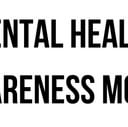In a recent New York Times op-ed, University of Chicago law and criminology professor Bernard Harcourt notes that a growing number of individuals “who used to be tracked for mental health treatment are now getting a one-way ticket to jail.” Pointing to a Justice Department study released in September 2006, Harcourt notes that 56% of those jailed in state prisons and 64% of all inmates across the nation reported mental health problems within the past year. He states that one reason for the increase in the number of mentally ill inmates may be a trend away from institutionalizing these individuals in mental hospitals and asylums.
In the 1940s and 1950s, the United States institutionalized people at higher rates than are reported today, but then the institutionalization was mostly attributable to mental hospitals, while today it is prisons. He writes, “Though troubling, none of this should come as a surprise. Over the past 40 years, the United States dismantled a colossal mental health complex and rebuilt — bed by bed — an enormous prison.”
(New York Times, January 15, 2007). See Mental Illness. The U.S. Supreme Court recently agreed to hear the case of Panetti v. Quarterman involving a different, but related issue: the standard for mental incompetency that would bar an execution. See Supreme Court.
News
“The Mentally Ill, Behind Bars”- an Op-ed by Bernard Harcourt
By Death Penalty Information Center
Posted on Jan 18, 2007 | Updated on Mar 14, 2025
Citation Guide



